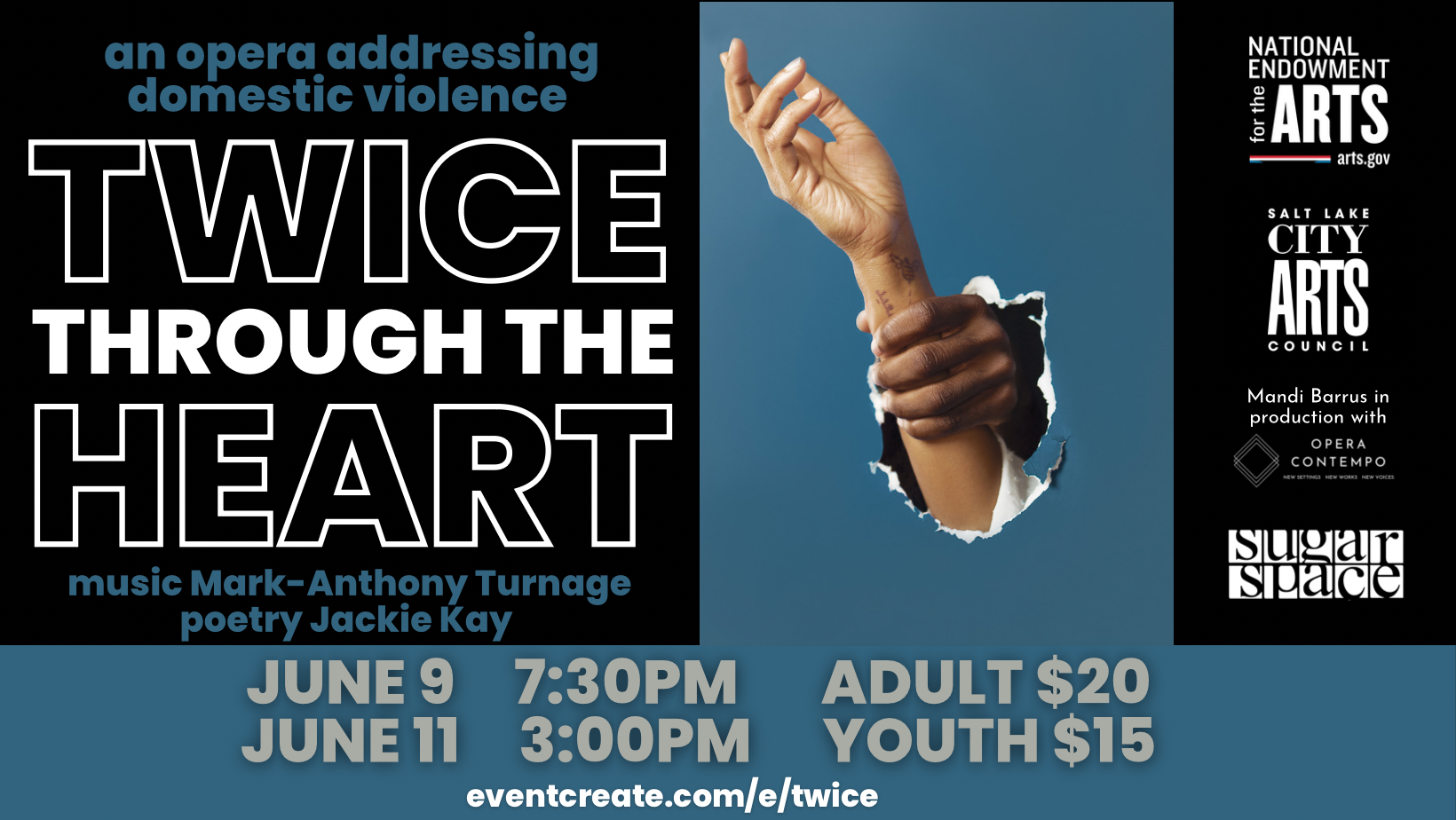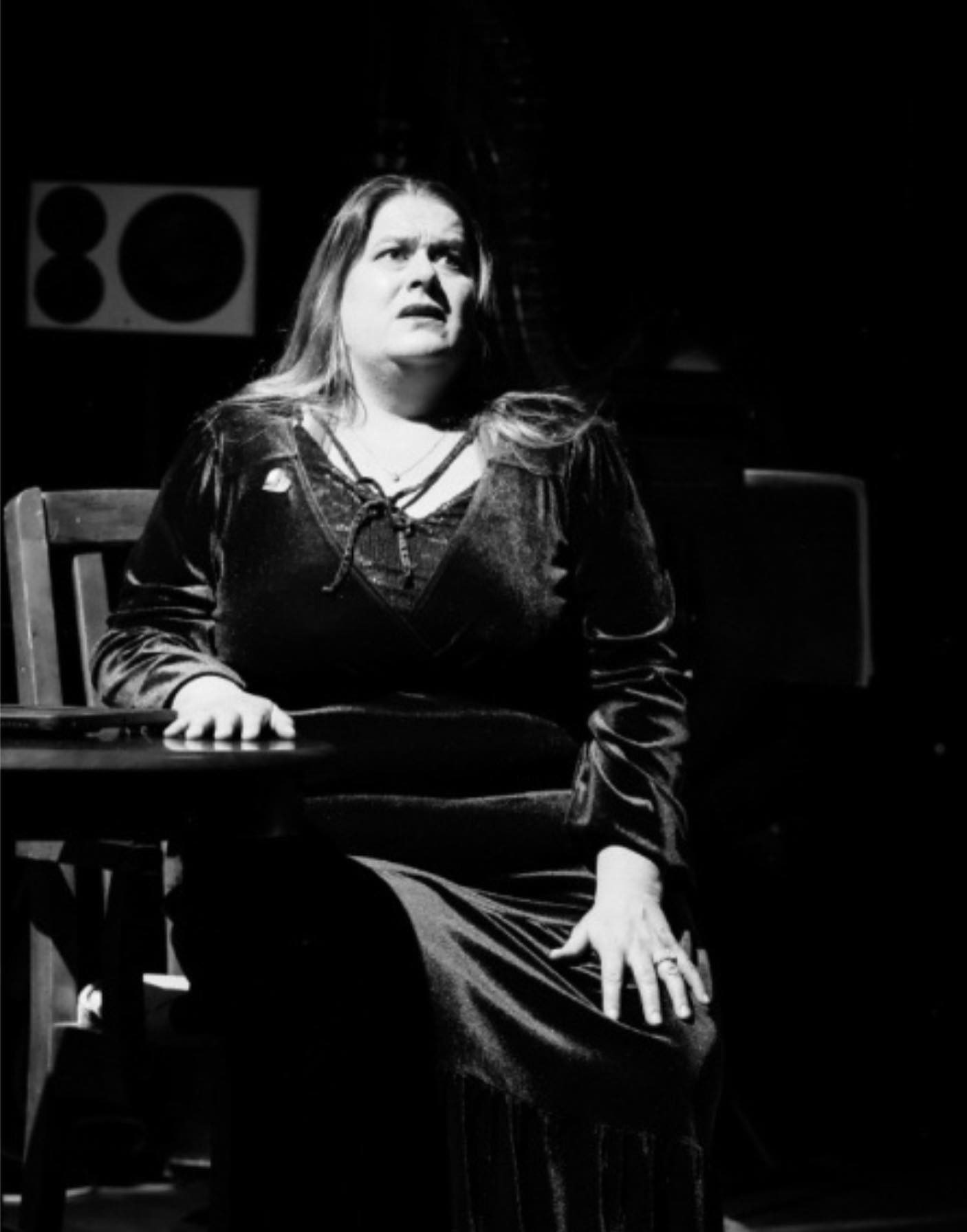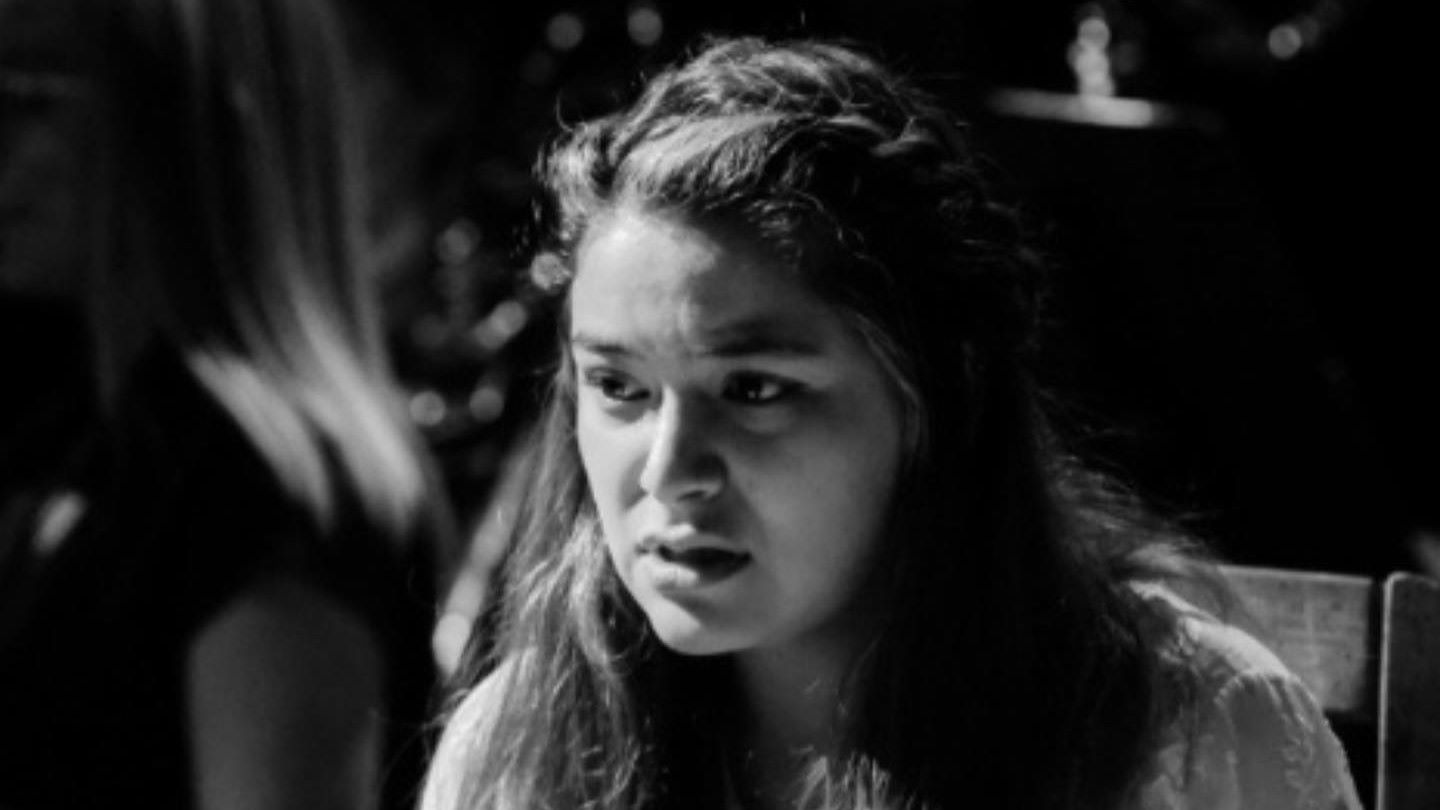SALT LAKE CITY — Twice Through The Heart (with music by Mark-Anthony Turnage and libretto adapted from a poem by Jackie Kay) is a very short (only thirty-five minutes) contemporary opera about domestic violence. The production was presented in a small space in which the orchestra taking up a majority of the stage, while a single table and chair act as the primary place for the singers to act out their parts. Each of the eight opera singers are seated to the side as they wait for their time to enter and exit the stage. There is a large, white tarp where a projector showcases statistics about domestic violence in Utah.

The music for the opera (conducted by Lauren Machado) is continuous, and the opera has no intermission or pause for applause. The show begins with singer one (Samantha Paredes) led in handcuffs to the table and chair. She immediately begins her story, talking about how “there’s no way out,” as she is trapped in the kitchen with her husband who is about to assault her. The music is immediately chilling in this piece, setting the stage for how frightening it is to be trapped with a violent man. Once her portion is complete, she is taken away in handcuffs.
The acting for each section of the poem feels uniquely potent, considering how there is very little movement involved, and nowhere for the performers to really go. For most performers, there is a level of somberness to each singer’s portrayal. These women and men are equal parts terrified and conflicted, and having a different performer for each piece of the poem highlights how no one is immune from intimate partner violence, regardless of gender, race, or sexual orientation.
Twice Through the Heart effectively links the stories together, with each singer using the similar keywords as past ones. The effect shows that survivors’ stories have comonalities, even if their specific situation is unique. For example, singer 6 (Mandi Barrus) talks about how she wants to go on adventures, but her husband just wants to stay home. He writes notes, and they fight, but the husband won’t speak to her. This ties into the experience of singer 3 (Madeleine Rodriguez), who talks about being pregnant with her child, and later on, her husband writes notes and they fight. In another segment, singer 4 (Lindsay Spring Browning) discusses how her husband hit her with a rolling pin — similar to singer one’s story — and the shame she felt, which reminded me of singer two (Sarah Singer) who was afraid to speak ill of her husband at the trial.

Liz Whittaker‘s directing is subtle, but potent, throughout the piece. For singer two (Sarah Singer) there is some silence before she starts, and I remember being distinctly impressed by Paredes’s intense gaze and strong emotional response as she recounts the harrowing encounter with her husband. But where the performers seem to lack strong acting, such as singer five (Jude Ruelas), their unique stories immensely make up for it. One drawback is that the screen displaying the opera lyrics also shows the statistics about interpartner violence in Utah, which divided my attention further and made it harder to focus on the actual performance. Additionally, the statistics are not available in the digital program, even though they would be useful to access after the show. The performance is more impactful anyway, and I wonder if the anything would be lost if the statistics were dropped from the show.
It is unfortunate that Twice Through the Heart only has two performances in its run. Interpartner and domestic violence is an important subject that the production engages with effectively. Twice Through the Heart also has the benefit of being a contemporary opera, which makes it accessible to modern audiences and helps free the artform from its European stereotypes. All in all, Twice Through the Heart is a memorable, touching work that is worth seeing — twice.
[box]The Opera Contempo production of Twice Through the Heart played June 9 and 11 at the Sugar Space Warehouse (. For more information about Opera Contempo, visit https://www.facebook.com/operacontempoutah.[/box]

